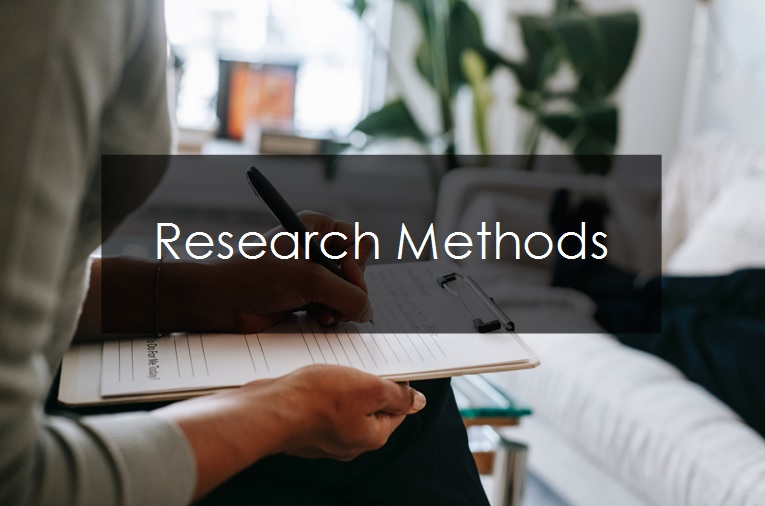Jarvis, M. (2023) ‘Qualitative research’, Psychology Review, 28 (4), p.30.
A-level and undergraduate psychology courses have always been rather dominated by quantitative research. But perhaps we don’t spend enough time looking at qualitative methods. This article draws on research studies mentioned in other articles in this issue.
Winder, B. (2023) ‘Ethical issues in socially sensitive research’, Psychology review, 28 (3), pp.26-28.
Belinda Winder considers the challenges of conducting research with people who have committed a sexual offence. This article supports your study of ethics.
Bell-Walker, R. (2023) ‘Exam focus: AQA research methods: getting it right’, Psychology Review, 28 (3), pp.14-15.
Rachael Bell-Walker looks at what can go wrong in student answers.
Thomas, S. (2022) ‘Exam focus: yes, you can be really good at research methods’, Psychology Review, 28 (2), pp.22-23.
Sheila Thomas makes the case for why research methods matter in psychology and gives some advice about how to improve in this area. This article supports your unit on Research methods.
Banyard, P. (2021) ‘In focus: ethics and the internet’, Psychology Review, 26 (4), pp.30-31.
The internet provides easy access to large amounts of information. Phil Banyard looks at the ethics involved. This article links to your unit on Research Methods.
Curtis, A. (2021) ‘Experimental design’, Psychology Review, 26 (3), pp.16-17.
An evaluation of the uses of Independent Measures Design (IMD), Repeated Measures Design (RMD) and Matched Participants Design (MPD) against a hypothesis.
Harkin, L. (2021) ‘Research methods in psychology’, Psychology Review, 26 (4), pp.16-17.
A revision poster that looks at qualitative methods and quantitative methods and asks which is best. This links to your unit on Research Methods.
Curtis, A. (2020) ‘Type 1 and 2 errors’, Psychology Review, 25 (3), pp.16-17.
Whenever an inferential statistical test is used to see if a difference, correlation or association is significant, there is a possibility of accepting the wrong conclusion.
Flanagan, C. (2020) ‘Exam eye: socially sensitive research’, Psychology Review, 26 (1), p.29.
Cara Flanagan provides some exam-based advice to support the article on pages 27-28 of this issue on conducting research with vulnerable and stigmatised minority groups.
Griffiths, M. (2020) ‘Online research on gambling’, Psychology Review, 25 (3), pp.27-29.
Mark Griffiths looks at how online methods are used in behavioural tracking of gambling research.
Jones, B. (2020) ‘Socially sensitive research’, Psychology Review, 26 (1), pp.27-28.
Beth Jones investigates the challenges and opportunities involved in conducting research with vulnerable and stigmatised minority groups.
McGee, J. (2020) ‘Exam focus: AQA: answering research methods questions’, Psychology Review, 26 (2), pp.6-7.
Jane McGee combines an interesting study with some useful exam insights.
Buxton-Cope, T. (2019) ‘Exam focus: AQA extended research methods questions: top tips and example answers’, Psychology Review, 25 (1), pp.6-8.
Explores two student responses to a research methods question and uses a mark scheme to assess them.
McDermott, M. (2019) ‘Being innovative and ethical about research’, Psychology Review, 24 (3), pp.23-25.
Mark McDermott reflects on the importance of the Stanford Prison Experiment and the BBC Prison Study.
Wilde, D. (2019) ‘In focus: thematic analysis for psychology’, Psychology Review, 25 (2), pp.8-10.
Discusses the principles of thematic analysis and gives two examples.
Grayson, A. (2018) ‘In focus: observational methods’, Psychology Review, 24 (2), pp.9-11.
Looks at the most pervasive research method used by psychologists.
Flanagan, C. (2017) ‘Experiments’, Psychology Review, 22 (4), pp.16-17.
All experiments have an IV and a DV. Researchers manipulate the IV, hold other variables constant, and measure change in the DV. Experiments provide insight into cause and effect by demonstrating the outcome when a particular factor is manipulated.

Back to Psychology Resources

